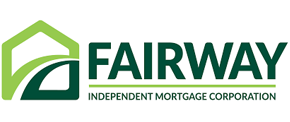Attorneys
Learn About the Many Uses of Reverse Mortgage Loans
Learn About the Many Uses of Reverse Mortgage Loans
While Rob and the Kanyur Reverse Team are ready to answer your specific questions, the following serves as an introduction to attorneys. Most reverse mortgage loans today are federally insured through the Federal Housing Administration’s (FHA) Home Equity Conversion Mortgage (HECM) program, which is a non-recourse mortgage loan for homeowners aged 62 and older. It converts about 30%-70% of a client’s equity into cash based on the youngest borrower.
The borrower never gives up ownership or control of the home, any mortgage balance is paid off and any remaining loan proceeds are usually tax-free.*
No monthly payments are required except for taxes, insurance and maintenance. If the mortgage balance exceeds the value of the home, FHA mortgage insurance protects the homeowner and their heirs.
With a reverse mortgage loan, the property, not the borrower, is responsible for paying off the loan. The borrower signs a release of personal liability at closing.
Reverse Mortgage Loans at a Glance
The heirs of the estate have six months to decide how they want to proceed with the property. They will have the option to request up to two 90-day extensions for additional time as long as they demonstrate that progress is being made. Assuming the house goes to the heirs, they have four options:
1.
Purchase the home for 95% of the appraised value
2.
Refinance or pay off the remaining balance of the loan
3.
Sell the house and keep the proceeds after paying off the loan
4.
Walk away if they choose not to purchase the home
(FHA mortgage insurance will pay any shortfall as long as long guidelines continue to be met)
Reverse Mortgage Legal Specific Issues
Up to two mortgages for 150% of the original appraised value of the house from lien and creditor protection
Deed never changes hands until the borrower moves out or passes away
Can use revocable or irrevocable trust with addendums
Attorney Practice Areas That Can Use Reverse Mortgages:
Elder Care
Medicaid Planning
Estate Planning
Tax Planning
Real Estate and Closing
Accredited Veterans
Foreclosure Prevention
Bankruptcy and Creditors
Litigation
Divorce
Potential Benefits to Your Clients
Increased Cash Flow
Tenure payments never run out! Credit lines cannot be closed
Increased Portfolio Longevity*
Decreased Income Taxes*
Increase in Net Worth and Legacy for Heirs*
Ability to Fund Needed Legal Work
Why Work With the Kanyur Reverse Team?
1. Professional team approach
2. All Reverse Mortgage Planners are required to have specialized training
3. Potential referral partnership
4. The opportunity to work with more senior clients
5. Trusted advisors know options and tools
Life Estate
Equity and value of life estate at risk
More difficult to use equity to fund living or health expenses
When the house is sold, money may or may not be available to the senior depending on the children’s wishes, especially from children involved in divorce or litigation
Depending on the tax structure, the sale of the home could be taxed with capital gains
Family not protected with downturns in the housing market. Sometimes need to sell at inappropriate times
Reverse Mortgage
Equity not at risk after it’s removed
Equity always available in liquid form for planned or emergency needs
When the house is sold, 100% of the unused equity goes to the heirs
Step up in basis could be of value if children inherit house after the senior passes away. No deed transfer on a reverse mortgage
Guaranteed credit line gives a predetermined value of equity 30+ years into the future
Planning for Long-Term Care (LTC) and Medicaid Issues
- Pay for LTC insurance premiums
- Minimize assets that can be recovered from Medicaid obligations
- Use loan proceeds to pay for LTC in the absence of other planning
- Pay attorney fees for LTC planning to prevent future problems
- Credit lines are not accountable assets that affect eligibility for Medicaid, SSI or VA Benefits
- Private pay LTC during the five-year look back period
- Converting countable assets to exempt equity
Estate Planning*
- Home equity must be part of the planning process. Currently, there is nearly $12 trillion in the homes of Americans 62 and older**
- Can be used to fund attorney fees to do the trusts, wills and advanced directives that are so critical in avoiding problems at death
- Lower lifetime taxable estate by reducing equity value
- Paying for life insurance policies needed for planning or that are running out
- Funding probate or estate taxes
- Lowering home equity below the taxable limit
Accredited Veterans Options
- Fund pre-application eligibility planning
- Fund private pay during the waiting period for VA loan approval
- Give veterans needed cash flow during the waiting phase
- Avoiding one-year ineligibility because of selling the home
Tax Planning*
- Replace taxable income with reverse mortgage loan proceeds which are usually non-taxable
- Letting interest build up so deductions can be bunched together, unlike a traditional mortgage which requires you to make payments even if there isn’t enough to deduct*
- Paying interest the same year as IRA withdrawals are taken out to offset retirement funding income*
- Estate tax planning after death: Pass on a potential tax deduction to heirs to offset the inherited taxable IRAS***
Divorce or Partnership Settlements
Conflict over a marital home can turn an otherwise amicable divorce into a protracted fight. Reverse mortgage loans offer a path for one party to keep the marital home, free of mortgage payments, and for the other spouse to buy a new home, also free of mortgage payments. Here’s how it works:
1.
This couple is in their early 70s, own a paid-off home worth $800,000 and are divorcing. Both parties want to live in a home of equivalent value post-divorce and neither want to make mortgage payments.
2.
One party becomes the sole owner of the marital home. They receive $400,000 from a reverse mortgage loan and give it to the other party in order to cover the home equity.
3.
The other party buys a new home for about $800,000 and uses the $400,000 they received as a down payment.
4.
The couple is divorced, but each person owns an $800,000 house, and neither has to make monthly mortgage payments. They just need to pay taxes, insurance and maintain the home.
Shield Home Equity
Use a HECM to pay off current mortgages, not mandatory obligations.* A Reverse mortgage can be used to protect and shield equity because of two mortgage liens placed on the home after a Reverse Mortgage is in place, even if money is not drawn and only a growing line of credit is put in place.
Use as an additional asset when a client should not draw from IRAs and other retirement funds because of tax purposes. In bankruptcy and foreclosure situations, sometimes a reverse mortgage will protect equity and allow borrowers to convert equity to cash.
Some bankruptcy attorneys use reverse mortgage loans as part of pre-bankruptcy planning to reduce equity so that the house does not need to be sold. “Reverse Mortgage Loans accrue interest, generally over long periods of time, but the deduction can be lost if the home is sold by a person (or entity) who doesn’t have sufficient income to be offset by the deduction.”***
Let’s Improve Your Clients’ Situations
Fill out this short form and we’ll reach out ASAP!
*This advertisement does not constitute tax and/or financial advice from Fairway
** Journal of Taxation 2016
*** Recovering a Lost Deduction, Barry H. Sacks – 2015















